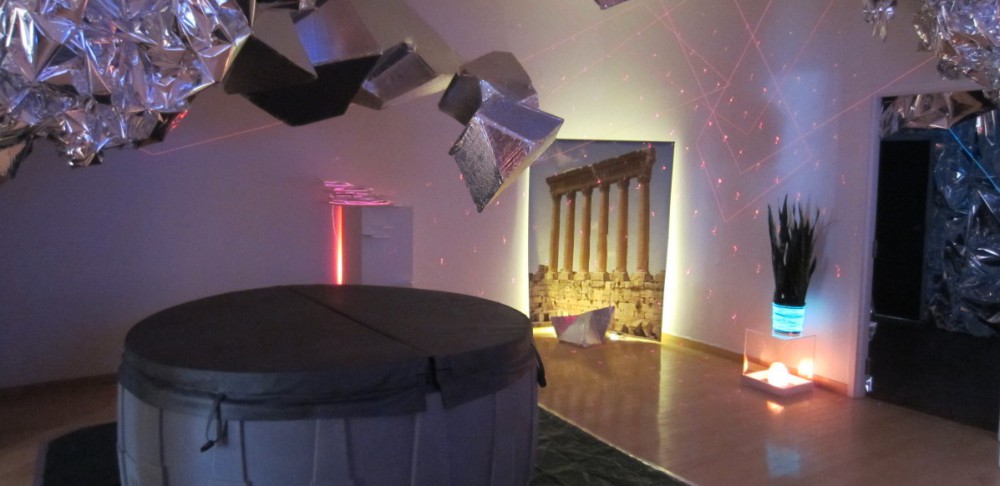The conclusion of the book is a little anti-climactic in my perspective. The lack of definitive resolution to Connie’s situation, and her uncertain effect on shaping the present and future is both frustrating and intriguing at the same time. Frustrating in that there isn’t concrete evidence to support that Connie’s actions had any bearing on the future. Intriguing in that the ambiguity allows the reader to image many different possible scenarios. I am aware that the end of chapter (Piercy, 376), Connie ends up back in Rockover. However that isn’t all there is to say on the subject.
That chapter 20 gives the perspective of various specialists, does not denote it as the ultimate truth. Rather, simply gives the reader the opposing viewpoint of this novel; how the doctors and specialists view Connie. When she is diagnosed as schizophrenic (374), that might just be the label they give Connie’s ability to time travel. It is my belief that this novel presents both Connie’s perspective and the perspective of the ‘specialist’ or the ‘status-quo’ to allow the reader to decide for themselves which to subscribe.
Thinking on perspective, I’m reminded of a famous story by the ancient Taoist Zhuangzi.
“Once upon a time, Zhuang Zhou dreamed he was a butterfly, a butterfly flitting about happily enjoying himself. He did not know that he was Zhou. Suddenly he awoke, and was palpably Zhou. He did not know whether he was Zhou, who had dreamed of being a butterfly, or a butterfly dreaming that he was Zhou. Now, there must be a difference between Zhou and the butterfly. This is called the transformation of things.”
Disregarding the ideas of transformation (a lot to say on that by itself), the idea that reality is in one’s perception is key here. In regards to Connie, she was not insane, but a psychic time traveler. Which is proven somewhat in that Connie is able to learn skills she had no prior knowledge of, such as breath control(221) and foraging for food in the forest(235). To the doctors, Connie was a schizophrenic with a history of drug abuse and violence. I enjoyed how it isn’t really possible to say which is truth.
In regards to whether or not Mattapoisett actually exists, I believe it is important, depending on what aspect of the narrative you are focusing on. If you are a reader who focuses on Connie’s journey through her ordeal, then “Mattapoisett” could have taken the form of anything really. From aliens civilizations to robotic enclaves, Connie could have some how been involved with any kind of plot device so long as it fulfilled the role of “Mattapoisett”. However for me I enjoyed most when Connie was in Mattapoisett 2137, since I am fascinated with the society and way of life of that future. So for me it was very important that Mattapoisett exist, which is why I’ve tried to find empirical evidence that it does in the text. This is also the reason why the author’s presentation of the future was not boring for me, as it was for many others in the class. I actually wanted to know more details.
My main gripe of the narrative is that it is not explained why Connie lost her “ability” to travel into the future. The narrative only hints that it may be due to the implant in her brain (320). If we consider her “ability” as actually being a sickness, then her loss of that “ability” would be considered a good thing. It can’t be known however, who considers such a loss a “good thing”. More food for thought.
I have to say I enjoyed the book. The ride was enjoyable but the destination was akin to ‘that feeling you get when someone gives you a gift you really don’t want’. I was secretly hoping Connie might stay in the future, but knew that since this was a book with a “message” or “agenda”, so to speak, that such an outcome was pretty much non-existent.
Zhuang, Zhou, and Burton Watson. Chuang-tzu: Basic Writings. New York: Columbia university press, 1964. Print.
“Chuang-tzu“. In Nienhauser, William, ed. The Indiana Companion to Traditional Chinese Literature, Volume 2. Bloomington: Indiana University Press. pp. 20–26.




I like how you mention Connie’s ability to learn things she couldn’t have done by herself as valid arguments for her having contact with Luciente and the other future characters.